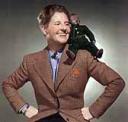The 20 09 Key West Literary Seminar is looking back -- specifically at historical fiction with some history thrown in. One of the historians we've invited is Jill Lepore and I just finished reading her book The Name of War, about King Philip's War and how it has been recorded and interpreted in American history.
Sadly, I managed to grow up and receive an alleged education in New England and still had no clear idea what King Philip's War was until I read "Mayflower" by Nathaniel Philbrick last year. I thought it was one of the French and Indian Wars, since they're named after royalty. Oops.
09 Key West Literary Seminar is looking back -- specifically at historical fiction with some history thrown in. One of the historians we've invited is Jill Lepore and I just finished reading her book The Name of War, about King Philip's War and how it has been recorded and interpreted in American history.
Sadly, I managed to grow up and receive an alleged education in New England and still had no clear idea what King Philip's War was until I read "Mayflower" by Nathaniel Philbrick last year. I thought it was one of the French and Indian Wars, since they're named after royalty. Oops.
Philbrick's book takes King Philip's War as a kind of coda to the initial landing and establishment of the Plymouth Colony (it was Philip's father, Massasoit, who made the initial contact and alliance with the English settlers, to the Native Americans' later regret and dismay). It's popular history, written with the layperson in mind. Lepore's is more academic but still very accessible. And it's really interesting on the whole issue of who controls the narrative of history, from the English settlers who initially wrote vivid accounts of the carnage -- to help justify sending Native Americans to slavery and death -- to the early 19th century Americans who staged an overwrought play called "Metamora," starring Philip as a sort of proto-Revolutionary American.
Interesting stuff. And since I'm finally about to return this book to the Monroe County Library, others can check it out.
 Over the weekend I finally finished reading The Scarlet Professor by Barry Werth, a biography of the literary critic and Smith professor Newton Arvin.
Arvin won a National Book Award and wrote several respected biographies -- but he's remembered as the target of a pornography bust in 1960, which targeted him because he was gay. And once he had been confronted, he immediately named a couple other smith instructors who also had some material then considered obscene (pretty tame by our standards, and it was later ruled not obscene but not before the lives of the three men had been ripped apart).
It's a terrible sad story, especially since you know the whole time where it's going, but still interesting -- and a good reminder of how horribly many gay people suffered, within living memory for many.
The book held special resonance for me since much of it takes place in Northampton, Mass., home of Smith College. I was born in the same hospital where Arvin died (four years afterwards) and grew up in the area. I rode horses and worked at the Smith College stables in high school (right below the state mental hospital where Arvin was admitted multiple times) and my first internship at a 'real" newspaper was at the Hampshire Gazette in Northampton and my cousin and her family live there today. So I know the place a bit, and it was interesting to read about its social and political climate in the earlier parts of the 20th century. (In a completely gratuitous aside, check out the city of Northampton's official website, above -- and compare it in ease of use and general user-friendliness to, say, the city of Key West site. Not to be all they-do-it-better-where-I-came-from, but ...)
Over the weekend I finally finished reading The Scarlet Professor by Barry Werth, a biography of the literary critic and Smith professor Newton Arvin.
Arvin won a National Book Award and wrote several respected biographies -- but he's remembered as the target of a pornography bust in 1960, which targeted him because he was gay. And once he had been confronted, he immediately named a couple other smith instructors who also had some material then considered obscene (pretty tame by our standards, and it was later ruled not obscene but not before the lives of the three men had been ripped apart).
It's a terrible sad story, especially since you know the whole time where it's going, but still interesting -- and a good reminder of how horribly many gay people suffered, within living memory for many.
The book held special resonance for me since much of it takes place in Northampton, Mass., home of Smith College. I was born in the same hospital where Arvin died (four years afterwards) and grew up in the area. I rode horses and worked at the Smith College stables in high school (right below the state mental hospital where Arvin was admitted multiple times) and my first internship at a 'real" newspaper was at the Hampshire Gazette in Northampton and my cousin and her family live there today. So I know the place a bit, and it was interesting to read about its social and political climate in the earlier parts of the 20th century. (In a completely gratuitous aside, check out the city of Northampton's official website, above -- and compare it in ease of use and general user-friendliness to, say, the city of Key West site. Not to be all they-do-it-better-where-I-came-from, but ...)


